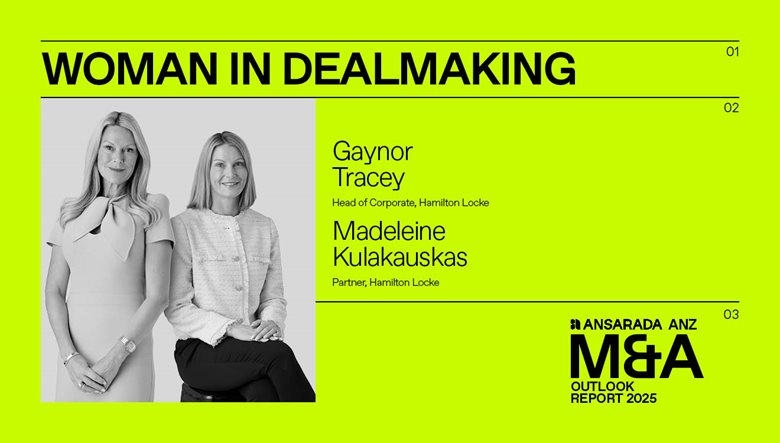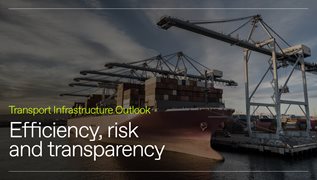Hamilton Locke’s Gaynor Tracey and Madeleine Kulakauskas: Tech, AI, health and financial services to drive deals
Gaynor and Madeleine share insights on market trends, sector opportunities and the evolving nature of M&A in Australia.
By AnsaradaWed May 21 2025Mergers and acquisitions, Industry news and trends, Investors

Gaynor Tracey – Head of Corporate and Madeleine Kulakauskas – Partner, both at law firm Hamilton Locke, say the technology, healthcare, and financial services sectors will drive deal activity in 2025 in Australia.
In this excerpt from our 2025 ANZ Women In Dealmaking M&A Outlook Report, which features insights from 12 of Australia’s leading female dealmakers, Gaynor and Madelaine share their perspective on market conditions, sector-specific opportunities, and the impact of AI on dealmaking processes.
“While we’re not anticipating a return to the frenetic pace of 2021,” says Gaynor, “we do foresee a significantly busier 2025 compared to the past two years.”
Gaynor points to moderating inflation and stabilizing interest rates as key drivers, fostering greater confidence in valuations and the overall economic climate. That, together with the bridging of the valuation gap between buyers and sellers and the necessity of private equity either needing to deploy capital or selling to return capital should make for fertile ground for deals.
Madeleine adds that the relative stability brought by the numerous global elections in 2024, despite evolving geopolitical dynamics, particularly in the US and Australia, will further encourage deal flow.
Even the political uncertainty brought about by the unprecedented moves by President Trump affecting countries including Australia, may generate M&A activity.
Looking ahead, Madeleine and Gaynor shared their insights on key sectors:
-
The robust market for B2B and SaaS businesses seen in 2024, coupled with rapid advancements in AI causing consolidation and dislocation, positions the technology sector as a prime area of activity.
-
The energy transition remains a top priority for the federal government. They expect increased M&A activity driven by capital requirements and consolidation in the renewable energy sector.
-
Australia’s aging population and the political pressure on containing health spending are expected to fuel significant activity in the healthcare sector.
-
Expect deregistration, consolidation and increasing profit pools in financial services, including within large banks and wealth management, to drive activity.
Both Gaynor and Madeleine anticipate increasing integration of AI into dealmaking, impacting every stage of the transaction lifecycle, from target identification to due diligence, simple document drafting and post-acquisition integration. Negotiation and judgement will still be very much required.
With the rise of AI and the potential for misinformation, deal teams will prioritize the soundness of information during due diligence. ESG considerations will also be paramount.
“ESG remains both a driver and a potential risk in M&A in Australia. Clients need to capitalize on ESG opportunities while mitigating the risk of acquiring targets with ESG-related contagion,” cautions Gaynor.
While deal timelines have shortened somewhat compared to the immediate post-COVID period, buyers continue to conduct thorough due diligence. Vendor due diligence remains a valuable tool, enabling sellers to address potential issues proactively and avoid price adjustments and truncate a timetable by frontloading due diligence.
Madeleine emphasises the importance of early engagement with brokers and insurers regarding W&I insurance. “Given the due diligence requirements for securing the best W&I coverage early planning is crucial.”
The new mandatory and suspensory merger clearance regime will also shape dealmaking, with 2025 serving as a transition year as bidders prepare for its full implementation in 2026.
“We’re actively advising clients on the implications of this new regime, this is a radical change and a significant number of clients who have never engaged with the ACCC will be mandated to do so. This will inevitably lead to delays and early disclosure of deals,” says Gaynor, who expects an uptick in deals as bidders look to get deals done before the regime comes into force.
In addition to PE deployments of dry powder, international corporates are well-positioned for acquisitions to mop up smaller or floundering businesses using undeployed cash reserves or using lower borrowing costs.
Reflecting on her career journey, Gaynor, who relocated to Australia after a decade in London, notes the significant progress for women in law.
“Dealmaking offers the opportunity to add real strategic value. The profession has changed dramatically since I started. There were times when, as a woman, I felt I had to leave part of myself at home. That’s no longer the case, particularly after the shift to remote work during the pandemic.”
Madeleine, who has worked with Gaynor for 15 years, finds fulfillment in guiding buyers and sellers through the M&A process. “My focus is on achieving mutually beneficial outcomes where both parties feel they’ve accomplished their objectives.”


